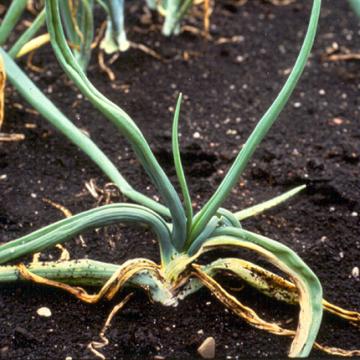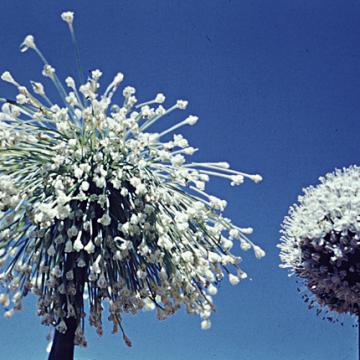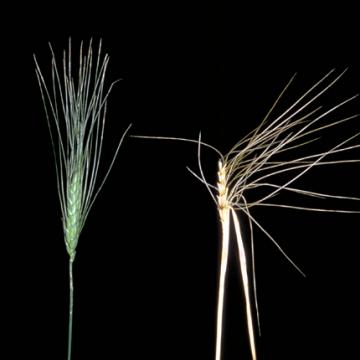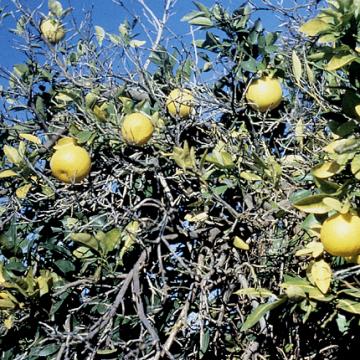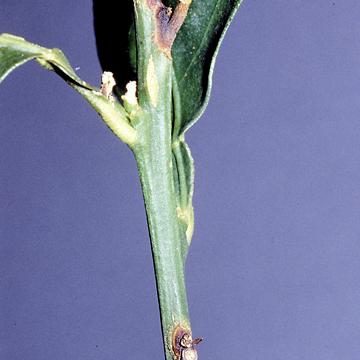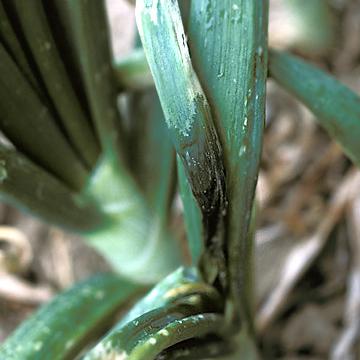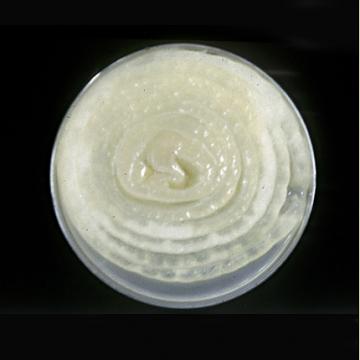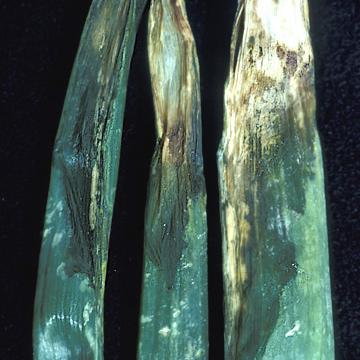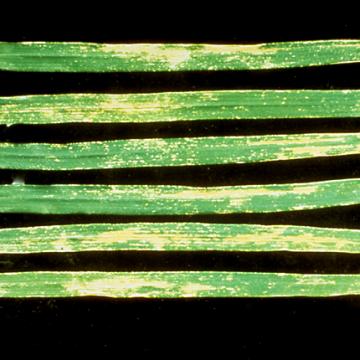DISEASE: Aster yellows
HOST: Onion
Infected plants with yellowish, malformed leaves.
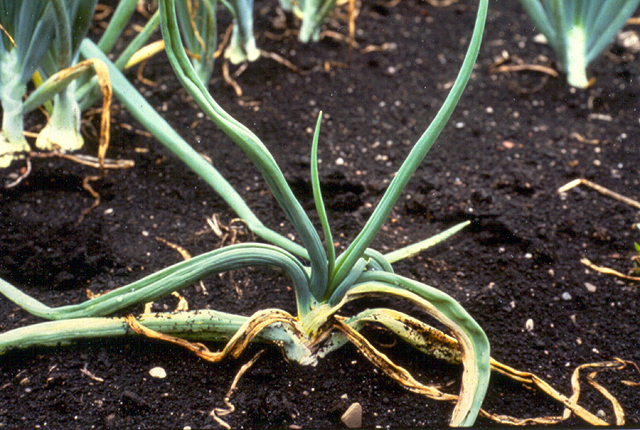
Aster yellows | Onion
DISEASE: Aster yellows
HOST: Onion (Allium cepa)
PATHOGEN: 'Candidatus Phytoplasma asteris'
PATHOGEN SYNONYM: Phytoplasma Aster yellows group
SOURCE: R. Rowe
DISEASE: Aster yellows
HOST: Onion
Onion flower with unusual symptoms (left) compared with healthy inflorescence (right). Flowers are distorted and often have abnormally long pedicels. Young leaves may have yellow streaks or a general yellowing of basal portions.
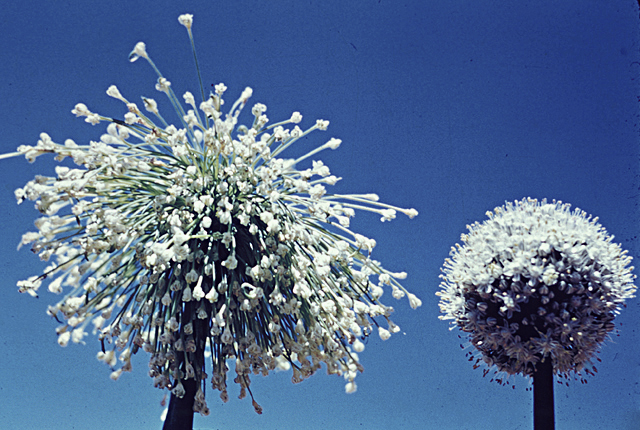
Aster yellows | Onion
DISEASE: Aster yellows
HOST: Onion (Allium cepa)
PATHOGEN: 'Candidatus Phytoplasma asteris'
PATHOGEN SYNONYM: Phytoplasma Aster yellows group
SOURCE: R. Raabe
DISEASE: Aster yellows
HOST: Wheat
Healthy head (left) and diseased head (right). Diseased seedlings may die within 2 to 3 weeks. Infected heads of surviving plants are small and sterile, with distorted awns.
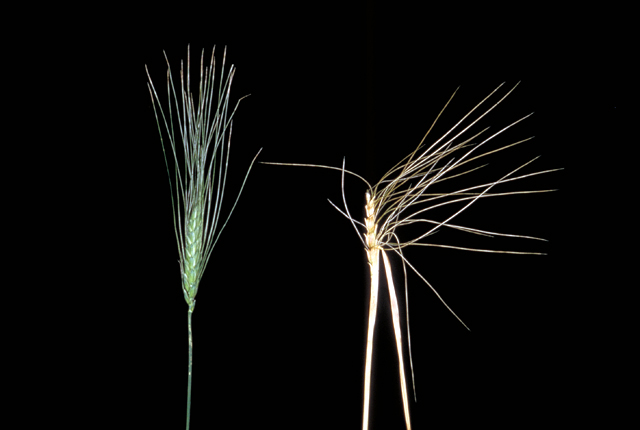
Aster yellows | Wheat
DISEASE: Aster yellows
HOST: Wheat (Triticum aestivum)
PATHOGEN: 'Candidatus Phytoplasma asteris'
PATHOGEN SYNONYM: Phytoplasma Aster yellows group
SOURCE: L. N. Chiykowski
DISEASE: Australian citrus dieback
HOST: Citrus (Lime)
Severe decline, a late stage of disease. The disease spreads slowly in mature trees, progressing faster in young trees.
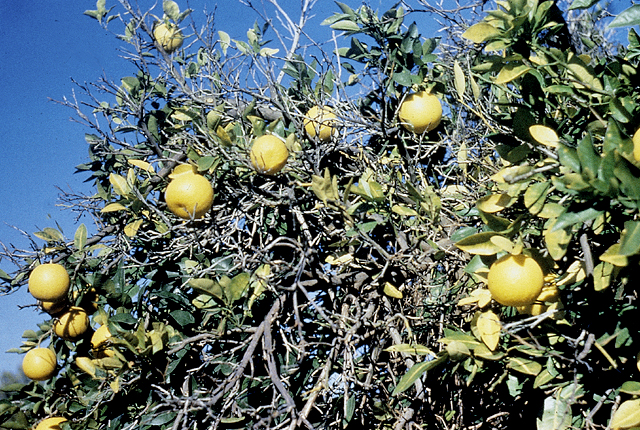
Australian citrus dieback | Citrus (Lime)
DISEASE: Australian citrus dieback
HOST: Citrus (Lime) (Citrus sp.)
PATHOGEN: 'Candidatus Phytoplasma australiense'
PATHOGEN SYNONYM: Phytoplasma Stolbur group
SOURCE: P. Broadbent
DISEASE: Bacterial blast and black pit
HOST: Citrus (Lime)
Characteristic symptoms of brownish black lesions on twigs and leaves (blast), starting with infection of petioles. Black pit refers to brown to black sunken spots on fruit, 5 to 20 mm in diameter.
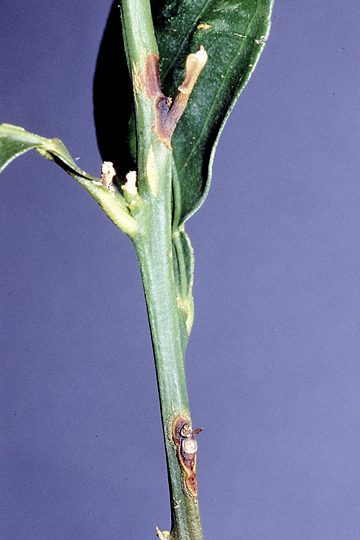
Bacterial blast and black pit | Citrus (Lime)
DISEASE: Bacterial blast and black pit
HOST: Citrus (Lime) (Citrus sp.)
PATHOGEN: Pseudomonas syringae pv. syringae
SOURCE: P. Broadbent
DISEASE: Bacterial flower stalk and leaf necrosis
HOST: Onion
Dark, rotted areas of stalk and leaves caused by systemic invasion of the pathogen.
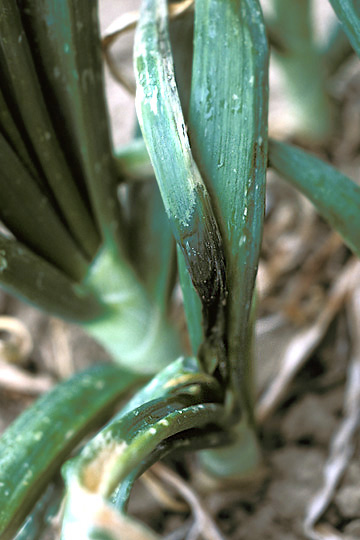
Bacterial flower stalk and leaf necrosis | Onion
DISEASE: Bacterial flower stalk and leaf necrosis
HOST: Onion (Allium cepa)
PATHOGEN: Pseudomonas marginalis pv. marginalis
SOURCE: S. Mohan
DISEASE: Bacterial flower stalk and leaf necrosis
HOST: Onion
Gray-brown rot of onion after inoculation. Disease starts as small, water-soaked lesions that later develop into slimy, gray-brown rot. The disease progresses downward from the stalk and may rot the entire bulb.
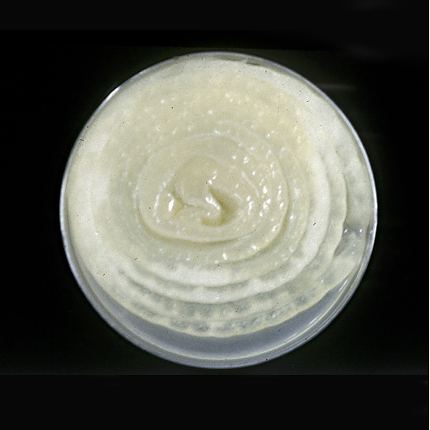
Bacterial flower stalk and leaf necrosis | Onion
DISEASE: Bacterial flower stalk and leaf necrosis
HOST: Onion (Allium cepa)
PATHOGEN: Pseudomonas marginalis pv. marginalis
SOURCE: R. Gitaitis
DISEASE: Bacterial flower stalk and leaf necrosis
HOST: Onion
Leaves with necrosis and rot. The common name for this disease is the same as those used for two other diseases. Also, another common name for this disease is bacterial soft rot.
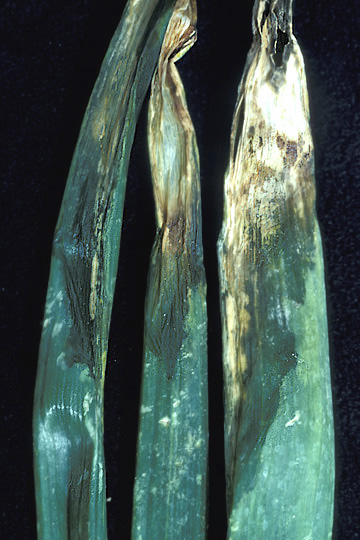
Bacterial flower stalk and leaf necrosis | Onion
DISEASE: Bacterial flower stalk and leaf necrosis
HOST: Onion (Allium cepa)
PATHOGEN: Pseudomonas marginalis pv. marginalis
SOURCE: S. Mohan
DISEASE: Bacterial leaf blight
HOST: Wheat
Diseased leaves with whitish blotches. Initial water-soaked spots become necrotic and progress from gray-green to tannish white.
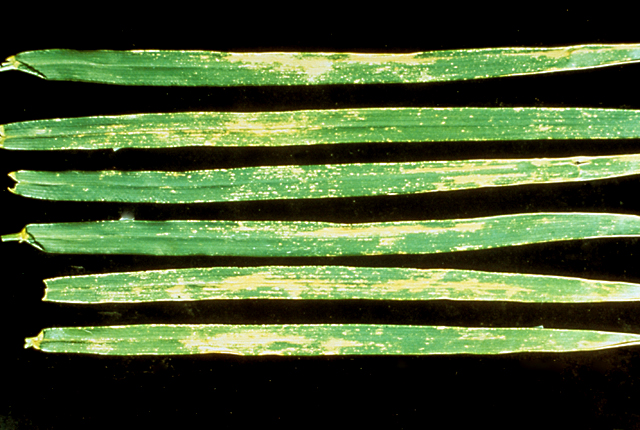
Bacterial leaf blight | Wheat
DISEASE: Bacterial leaf blight
HOST: Wheat (Triticum aestivum)
PATHOGEN: Pseudomonas syringae pv. syringae
SOURCE: J. Otta


